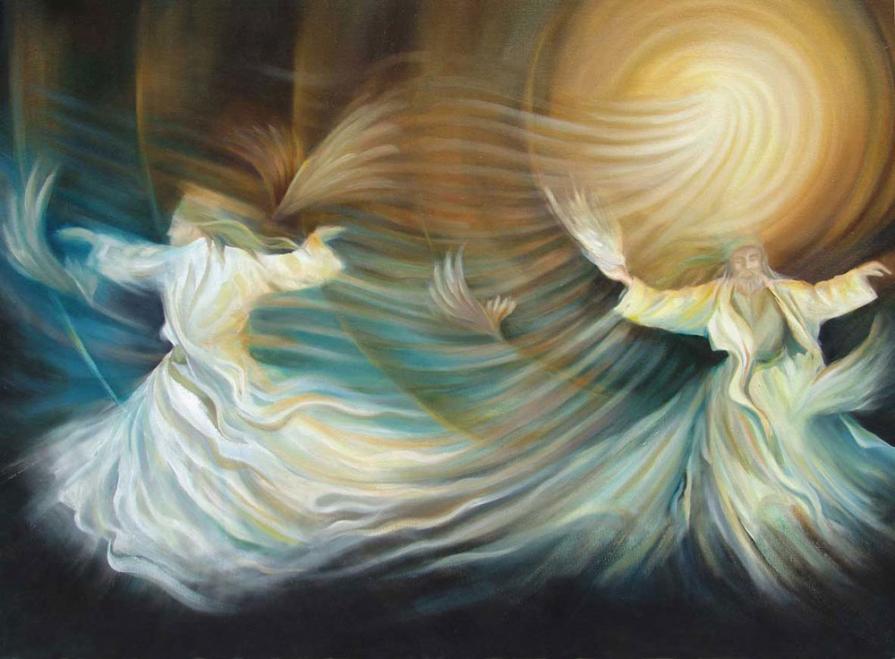The "Sama" (Sufi Whirling)
Sufism can be described as intense devotion to Islam. A central aspect is that genuine insight into the nature of the world can only be attained through an intimate and personal love of God. Only by relinquishing all personal needs and devoting oneself fully to the will of God can a Sufi experience the true meaning of Islam. The word suf (Arabic for wool) by all accounts refers to the humble woolen garment that originally was the ascetic Sufi’s only clothing.
The word dervish calls to mind the phrases howling dervish and whirling dervish. Certainly there are dervishes whose religious exercises include making loud howling noises or whirling rapidly to induce a dizzy, mystical state. But a dervish is really the Muslim equivalent of a monk or friar, for the Persian word darvsh, the ultimate source of dervish, means "religious mendicant." The word is first recorded in English in 1585.
Dervish, an ascetic Muslim monk; a member of an order noted for devotional exercises involving bodily movements.
The whirling dance or Sufi whirling that is proverbially associated with Dervishes is best known in the West by the practices (performances) of the Mevlevi order in Turkey, and is part of a formal ceremony known as the Sama. It is, however, also practiced by other orders. The Sama is only one of the many Sufi ceremonies performed to try to reach religious ecstasy (majdhb, fana). The name Mevlevi comes from the Persian poet, Rumi who was a Dervish himself.











Commenti 2
Unbeliever, fire worshiper, come.
Our way is not one of desperation.
Even if you break your vows a hundred times,
Come. Come again."
(Mevlana Jelaluddin Rumi)
Nice...!
Inserisci commento